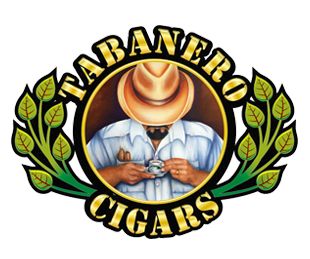How to Choose a Cigar Strength: Your Complete Guide to Finding the Perfect Smoke
Choosing the right cigar strength can feel like navigating uncharted waters, especially when you're standing in front of a humidor filled with options that all look remarkably similar. Whether you're a complete newcomer to the world of premium cigars or someone looking to expand your palate, understanding cigar strength is absolutely crucial to enjoying your smoking experience.
The truth is, there's nothing quite like the disappointment of lighting up what you thought would be a relaxing evening smoke, only to find yourself overwhelmed by a powerhouse that leaves you feeling queasy. Conversely, experienced smokers often find themselves underwhelmed by cigars that simply don't deliver the complexity and intensity they're seeking.
Understanding What Cigar Strength Really Means
When we talk about cigar strength, we're primarily discussing the nicotine content and how it affects your body. This differs from flavour intensity or complexity, though these elements often intertwine. A strong cigar will deliver more nicotine, which can affect your heart rate, cause slight dizziness if you're not accustomed to it, and generally provide a more intense physical experience.
Think of it like comparing a single espresso to a double shot. Both are coffee, both have similar flavours, but one will give you a significantly different buzz. The same principle applies to cigars, where the strength can range from barely noticeable to genuinely powerful.
Cigar strength typically falls into three main categories: mild, medium, and full-bodied. However, many manufacturers and retailers, including specialists like Tabanero Cigars, often use more nuanced classifications such as mild-medium or medium-full to give smokers a better idea of what to expect.
Factors That Influence Cigar Strength
The strength of a cigar isn't determined by a single factor but rather by a combination of elements that work together to create the final product. Understanding these can help you make more informed choices when selecting your next smoke.
The region where tobacco is grown significantly impacts its strength. Cuban tobacco, for instance, tends to be quite potent, while Dominican tobacco often produces milder cigars. Venezuelan tobacco, which forms the backbone of many premium blends, typically falls somewhere in the middle but can vary considerably depending on the specific growing conditions and processing methods.
Ligero tobacco, which comes from the upper leaves of the tobacco plant, receives the most sunlight and tends to be the strongest. Seco (middle leaves) provides medium strength, while volado (lower leaves) is typically the mildest. The proportion of these different leaf types in a blend directly affects the final strength.
The fermentation process can either intensify or mellow tobacco strength. Longer fermentation periods generally result in smoother, more complex cigars, though not necessarily weaker ones. Some tobaccos actually develop more concentrated flavours and strength through extended aging, while others become more refined and approachable.
Here's where things get interesting. A cigar's dimensions affect how you experience its strength. Thicker cigars (larger ring gauges) tend to burn cooler and can taste milder than the same tobacco in a thinner format. This happens because the larger surface area allows for better combustion and more air flow, which can reduce the intensity of the smoke.
Longer cigars also tend to start milder and build in strength as you smoke them, as the tobacco oils and tar accumulate in the remaining portion of the cigar.
Reading Cigar Strength Indicators
Most reputable cigar retailers provide strength ratings, but understanding how to interpret these can save you from unpleasant surprises. Strength ratings typically use scales like 1-5 or descriptive terms, but these aren't standardised across the industry.
When browsing selections at established retailers, you'll often find detailed descriptions that go beyond simple strength ratings. These might mention specific tobacco origins, fermentation processes, or tasting notes that can give you clues about what to expect.
Look for terms like "Connecticut wrapper" which typically indicates a milder smoke, or "Maduro wrapper" which suggests a richer, often stronger experience. However, remember that the wrapper is just one component, and the filler tobacco ultimately determines much of the strength.
Finding Your Personal Preference
Discovering your ideal cigar strength is a journey that requires honest self-assessment and gradual exploration. Start by considering your experience with other nicotine products. If you're a non-smoker or only occasionally enjoy cigarettes, beginning with mild cigars is almost certainly your best bet.
For those with more tobacco experience, you might be tempted to jump straight to full-bodied cigars, but this can be a mistake. Cigar smoking is quite different from cigarettes, and even experienced cigarette smokers often find themselves overwhelmed by strong cigars initially.
Consider the context in which you'll be smoking. A mild to medium cigar might be perfect for a morning coffee pairing, while a full-bodied smoke might be ideal after a substantial dinner. Your palate, energy levels, and even your stress levels can all affect how you experience cigar strength.
The Progression Path: Building Up Your Tolerance
Most cigar enthusiasts find their preferences evolve over time. What starts as an appreciation for mild, smooth cigars often develops into a desire for more complex, stronger smokes. This progression is natural and should be embraced rather than rushed.
Start with well-regarded mild cigars from reputable manufacturers. These will give you a foundation for understanding tobacco flavours without overwhelming your palate with strength. Pay attention to how different cigars make you feel physically, not just how they taste.
As you become more comfortable, gradually explore medium-strength options. This is often where many smokers find their sweet spot, as medium cigars typically offer good complexity without being overpowering.
Full-bodied cigars should be approached with respect and preparation. These are best enjoyed on a full stomach, with plenty of time to savour them, and preferably when you won't need to be particularly alert afterwards.
Common Mistakes When Choosing Cigar Strength
One of the most frequent errors newcomers make is choosing cigars based on appearance rather than strength ratings. A beautifully dark, oily wrapper might look appealing, but it could indicate a significantly stronger cigar than you're prepared for.
Another common mistake is not considering the time of day and your physical state. Smoking a strong cigar first thing in the morning or when you haven't eaten recently is a recipe for an unpleasant experience. Your body's ability to process nicotine varies throughout the day and based on your blood sugar levels.
Many people also make the error of trying to impress others by choosing stronger cigars than they can comfortably handle. There's absolutely no shame in preferring milder cigars, and many of the world's most celebrated cigars are actually quite mild.
Pairing Considerations
The strength of your cigar should complement whatever you're drinking or eating alongside it. A delicate whisky or light beer can be completely overwhelmed by a full-bodied cigar, while a mild cigar might get lost next to a robust red wine or peated Scotch.
Consider the progression of your evening as well. If you're planning to enjoy multiple cigars, start with the mildest and work your way up in strength. Your palate will become less sensitive as the evening progresses, so that full-bodied cigar you've been saving should come last.
Understanding Your Physical Response
Learning to recognise your body's response to different cigar strengths is crucial for making good choices. Mild dizziness, increased heart rate, or slight nausea are all signs that you might be smoking something stronger than your current tolerance allows.
These physical responses aren't necessarily dangerous for healthy adults, but they can certainly spoil your enjoyment. If you start feeling overwhelmed, slow down your smoking pace, take longer breaks between puffs, or consider putting the cigar down and returning to it later.
Regional Preferences and Availability
In the US market, there's generally excellent availability of cigars across all strength levels, though preferences tend to lean towards medium to full-bodied cigars, particularly among experienced enthusiasts. This might be influenced by the British appreciation for robust flavours in other tobacco products and beverages.
When shopping from US-based retailers, you'll often find helpful staff who can guide you based on your experience level and preferences. Don't hesitate to ask questions about specific cigars or request recommendations based on your taste preferences and tolerance level.
Building Your Cigar Collection
As you develop your understanding of cigar strength, consider building a diverse collection that allows you to choose appropriate cigars for different occasions. Having mild options for casual afternoon smoking, medium cigars for social occasions, and perhaps a few full-bodied options for special celebrations ensures you're always prepared.
Store different strength cigars in your humidor with clear labelling if necessary. There's nothing worse than accidentally reaching for a powerhouse when you wanted something gentle, or vice versa.
The Role of Experience and Patience
Remember that developing an appreciation for different cigar strengths takes time and experience. Don't feel pressured to immediately love strong cigars or to progress faster than feels comfortable. Some of the world's most knowledgeable cigar enthusiasts still regularly enjoy mild cigars and consider them among their favourites.
The cigar world is vast and varied, with countless options to explore. Whether you settle into a preference for mild Connecticut-wrapped cigars or develop a taste for robust Nicaraguan powerhouses, the most important thing is finding what brings you genuine enjoyment.
Take notes on cigars you try, including not just how they tasted but how they made you feel. This personal database will become invaluable as you continue exploring and will help you make better choices in the future.
Your journey in discovering the perfect cigar strength is deeply personal and should be enjoyed at your own pace. With patience, experimentation, and honest self-assessment, you'll develop the knowledge and palate to choose cigars that consistently provide the experience you're seeking.







Yanko Maceda
Author